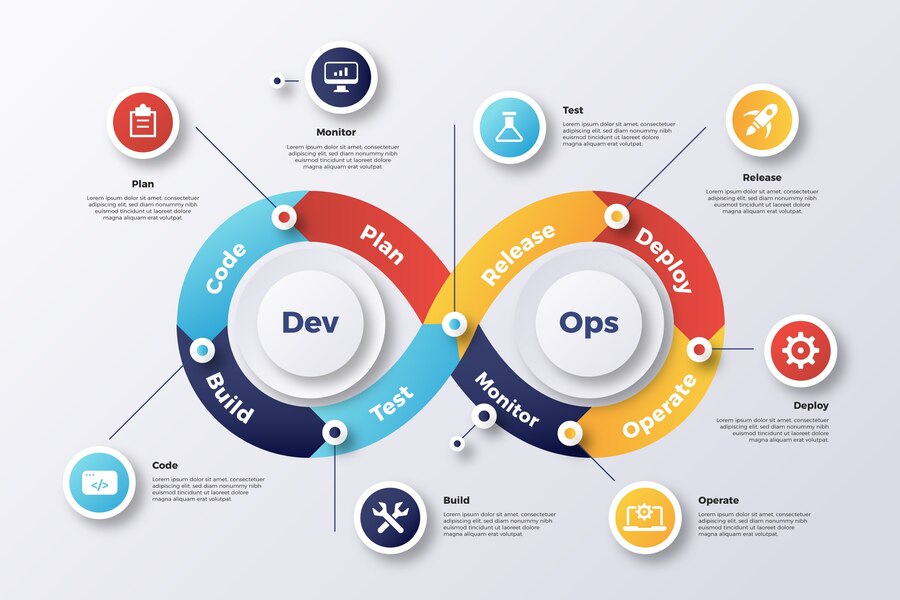DevOps: Bridging the Gap Between Development and Operations
 Deepak Jadhav
Deepak Jadhav
In today's fast-paced technological landscape, the seamless collaboration between development and operations teams is crucial for delivering high-quality software efficiently. This is where DevOps comes into play, revolutionizing traditional software development methodologies. Let's delve into what DevOps entails and why it's paramount in modern software engineering.
Understanding DevOps, DevOps is not merely a set of tools or practices; it's a cultural shift that fosters collaboration, communication, and integration between development (Dev) and operations (Ops) teams throughout the software development lifecycle. It emphasizes automation, continuous integration/continuous deployment (CI/CD), and a feedback-driven approach to deliver code faster, reliably, and more frequently.
Automation, Scaling, and Infrastructure Automation lies at the heart of DevOps, enabling teams to streamline repetitive tasks, enhance efficiency, and minimize human error. By automating processes such as code deployment, testing, and infrastructure provisioning, DevOps facilitates rapid delivery without compromising quality.
Scaling is another essential aspect of DevOps, especially in today's era of cloud computing and dynamic workloads. DevOps practices empower organizations to scale their infrastructure seamlessly to meet fluctuating demands, ensuring optimal performance and resource utilization.
Infrastructure as Code (IaC) is a key concept in DevOps, wherein infrastructure is managed through code and treated as software. This approach allows teams to provision and manage infrastructure resources programmatically, leading to greater consistency, scalability, and reproducibility.
The Importance of DevOps Accelerated Delivery:DevOps accelerates the software delivery process, enabling organizations to release features and updates rapidly, thus gaining a competitive edge in the market.
Improved Collaboration: By breaking down silos and fostering cross-functional collaboration, DevOps enhances communication and alignment between development, operations, and other stakeholders, leading to smoother workflows and faster problem resolution.
Enhanced Reliability: DevOps practices such as automated testing, continuous monitoring, and fast feedback loops improve software quality and reliability, reducing the likelihood of defects and downtime in production environments.
Scalability and Flexibility: With DevOps, organizations can scale their infrastructure and applications efficiently to handle growing workloads and adapt to changing business requirements, ensuring resilience and agility.
Cost Efficiency: By optimizing resource utilization, automating manual tasks, and minimizing downtime, DevOps helps organizations reduce operational costs and achieve higher returns on investment (ROI).
In conclusion, DevOps is not just a buzzword; it's a paradigm shift that empowers organizations to innovate, collaborate, and deliver value to customers at an unprecedented pace. By embracing DevOps principles and practices, businesses can stay ahead in today's dynamic and competitive landscape. Let's embrace the DevOps mindset and unleash the full potential of software delivery. #DevOps #Automation #ContinuousDelivery #InfrastructureAsCode #Agile #SoftwareDevelopment #Collaboration
Subscribe to my newsletter
Read articles from Deepak Jadhav directly inside your inbox. Subscribe to the newsletter, and don't miss out.
Written by
